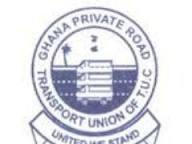 Ghana Private Roads Transport Union (GPRTU)
Ghana Private Roads Transport Union (GPRTU)
An Accra Human Rights High Court has granted an injunction restraining the Ghana Private Roads Transport Union (GPRTU) of the Trades Union Congress (TUC) from using literacy requirement in its 2011 constitution to prevent members from contesting in elections of the body.
The injunction would prevent members of National Executive Committee, officers and other bodies deriving authority from the GPRTU from enforcing the said articles in its 2011 constitution.
Moving the motion for an order for interlocutory injunction in a court, presided over by Justice K.A. Okwabi on Thursday, Anthony Forson Jnr., lawyer for Kwame Kumah, the second defendant, said the provision in the constitution regarding the literacy requirement of the national trustee was smuggled into the constitution.
He explained that per the constitution of the GPRTU, an amendment must be preceded by a circulation of an agenda for six weeks before the holding of the conference, adding that a decision ought to be taken on that amendment.
Mr. Forson Jnr. stated that when the 2007 constitution was amended in 2011, the said provision, which was not discussed, was incorporated into the constitution.
He argued that the literacy requirement for the National Chairman and Vice Chairman was discriminatory and violates the 1992 constitution.
Mr. Forson Jnr said, “Qualification for president of Ghana and Members of Parliament (MPs) does not have literacy requirements, same goes for district assembly elections.”
The counsel for Kumah noted that his client had also been denied the right to participate in the governance of the country through the association, adding that his right had been recognized and guaranteed through the Universal Declaration Human Rights of 1948 which Ghana is a signatory.
Interestingly, Adjabeng Akrasi, counsel for GPRTU, the first defendant, was not in court.
However the lawyer sent a letter seeking an adjournment of the case until October 15, 2015, knowing that the election had been slated for September, this year.
Mr. Forson Jnr, who prayed the court to disregard the letter, said the letter was brought to the court in absolute bad faith.
He said that the application was filed on July 10, 2015 and served on the respondents on 13 July before hearing of the case.
Mr. Forson Jnr. said the letter sought to deny the court of its powers.
He said the request was improper, citing Order 1 rule 2 of CI 47 which mandated the court to ensure speedy trial.
Mr. Forson Jnr. stated that the judge could consider the motion based on documents that had been filed.
He said after 10 days of serving Lawyer Akrasi with the documents, he did not file any response in opposition.
The trial judge accordingly disregarded the letter on the basis that Akrasi had been adequately notified.